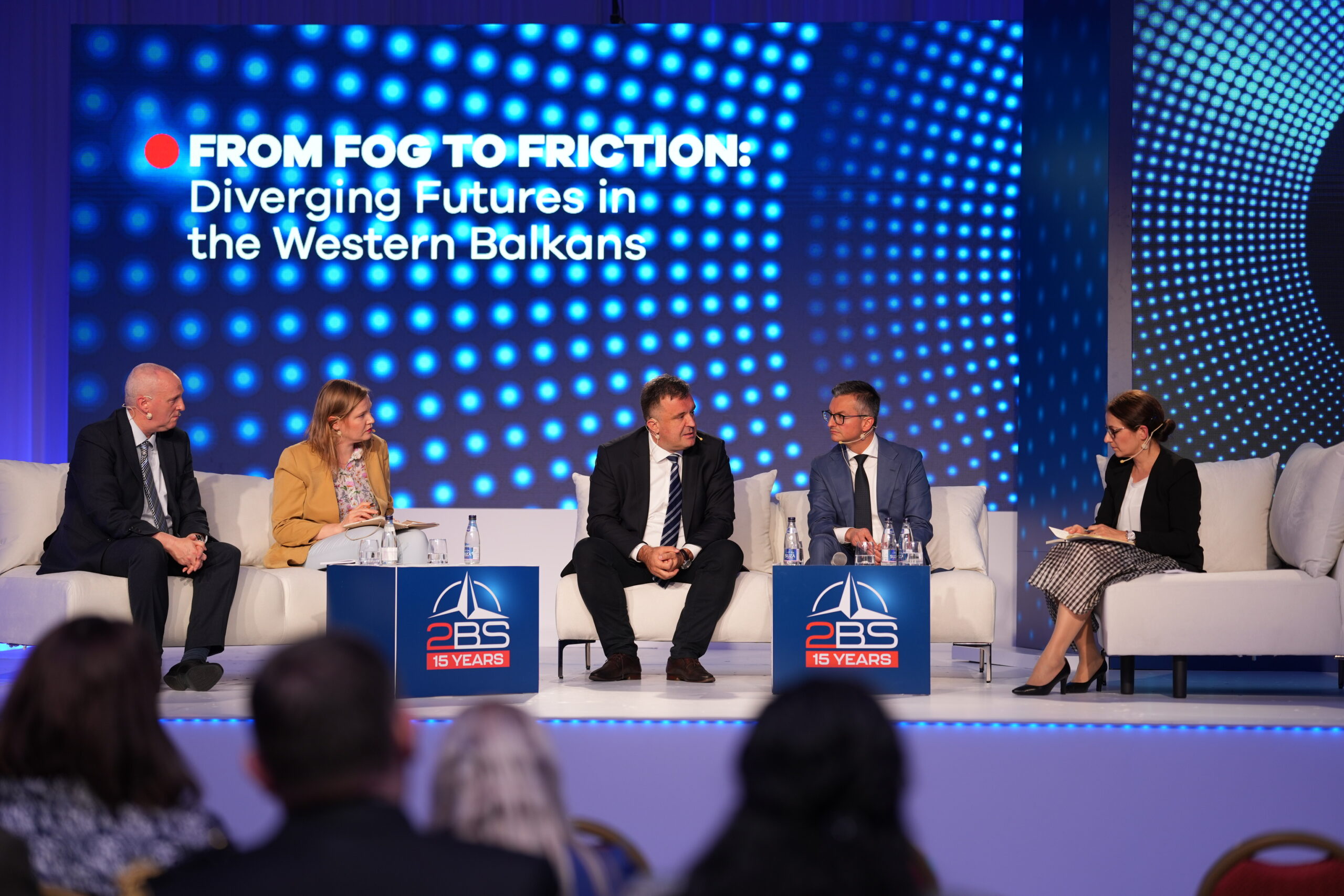The process of joining the European Union remains unfinished, and its success requires unity among member states and clear political will in the region. This was concluded at the last panel on the first day of the 2BS Forum titled: From Fog to Friction: Diverging Futures in the Western Balkans.
Kenneth Morrison, history professor and director of the Institute for Global Challenges and Culture at De Montfort University, speaking about enlargement, said that whenever there are major geopolitical events, our region has been exposed and always faced problems as a result. The situation today is the same because the region remains vulnerable. He supports the accession of all Balkan countries to the European Union, but the process is unfinished, and we must work hard to complete it.
Speaking about negative trends, he said there are divergent foreign policies regarding Montenegro and Serbia.
“When it comes to Montenegro, integration into NATO was crucial, and now it is focused on joining the EU. The situation in Serbia is different; they maintain a position of neutrality, not wanting to join NATO, but that neutrality and sitting on two chairs, combined with Aleksandar Vučić’s policy, has created space for other actors to engage here, primarily Russia and China,” said Morrison.
Marjan Šarec, Member of the European Parliament and the European Parliament’s rapporteur for Montenegro, notes that “the past in the Balkans is uncertain, so it is no surprise that we don’t know what the future will look like.”
“There is a significant divergence between the European Parliament, the Commission, and the member states, and of course, the process in Montenegro depends on the member states. We always emphasize Montenegro and Albania’s readiness, but we forget that the process will end with ratification by the member states, so we must be aware that this is a process that requires effort to convince the member countries. We need to work more on unity. We agree that the Union needs Montenegro and Albania as much as we need the EU because the EU today stands on very weak grounds, and we are not the player we should and could be, while enlargement is the core of our existence. My experience tells me we have talked too much about how to talk and have forgotten to achieve and show results,” Šarec said.
Zlatko Vujović, president of the Board of Directors at the Center for Monitoring and Research (CeMI), asked about the relationship between public opinion and political processes in the region, said we face a situation where certain actors use the media for their interests.
“This is happening now in the region. Aleksandar Vučić controls a good part of the media with national frequency and buys them in various ways. In Montenegro, if we talk about ownership, we can say some media are under Vučić’s control, which affects the shaping of public opinion by foreign actors, thus influencing domestic politicians. In Montenegro, we have many politicians but no statesmen. Such politicians are easily influenced by public opinion,” Vujović said. He expressed concern that certain politicians opposing EU membership will use public opinion and the media precisely against EU accession.
Frauke Sibas, associate at the German Council on Foreign Relations (DGAP) Berlin, emphasized that the perception of belonging to Europe has changed much regarding the region we are talking about.
“When we look at the period since the financial crisis of 2008, we see that for many European citizens, this region has in many ways drifted away, while on the other hand, it has become more integrated,” Sibas said.
